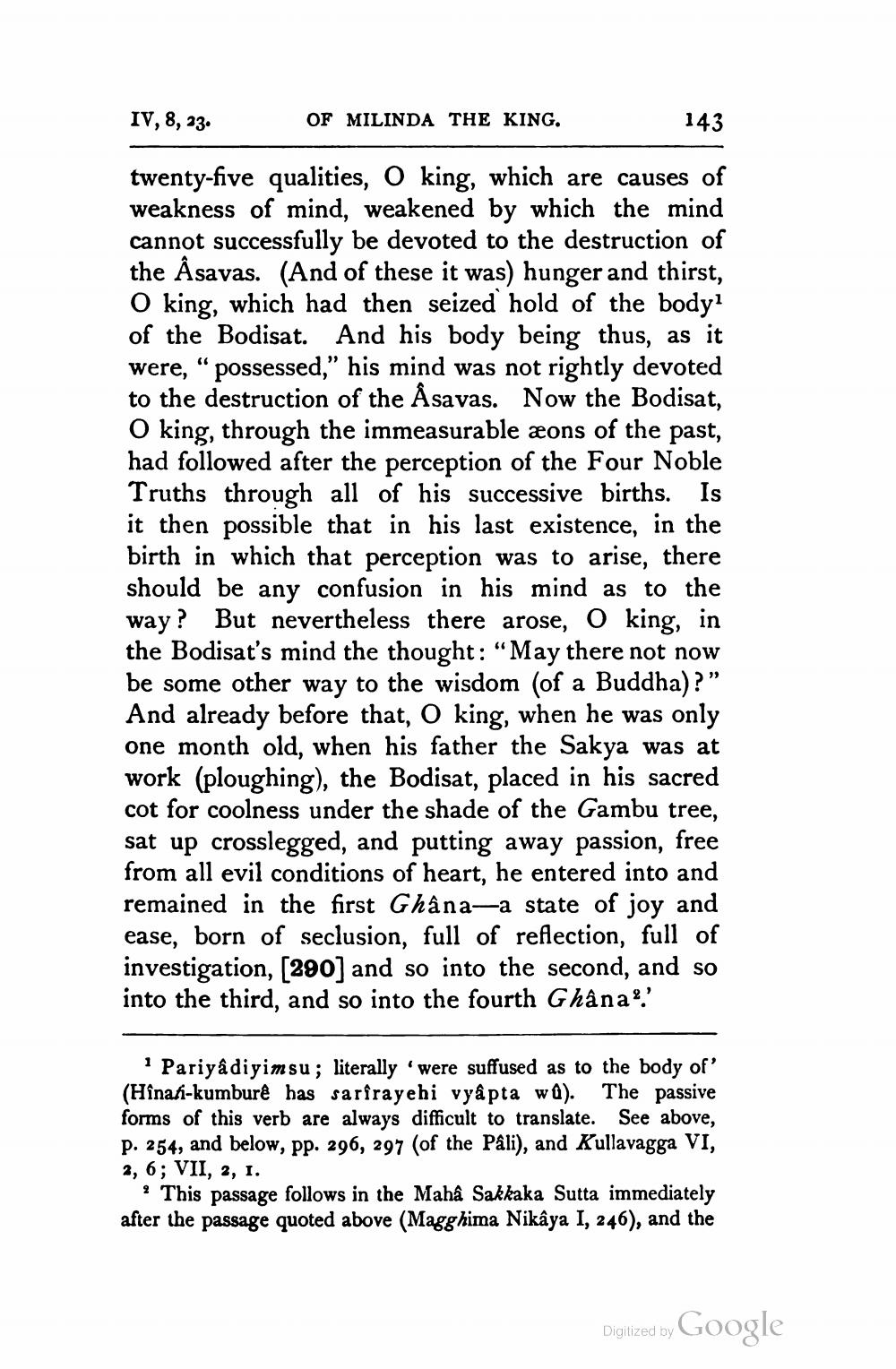________________
IV, 8, 23.
OF MILINDA THE KING.
143
twenty-five qualities, O king, which are causes of weakness of mind, weakened by which the mind cannot successfully be devoted to the destruction of the Asavas. (And of these it was) hunger and thirst, O king, which had then seized hold of the body? of the Bodisat. And his body being thus, as it were, “possessed,” his mind was not rightly devoted to the destruction of the Åsavas. Now the Bodisat, O king, through the immeasurable æons of the past, had followed after the perception of the Four Noble Truths through all of his successive births. Is it then possible that in his last existence, in the birth in which that perception was to arise, there should be any confusion in his mind as to the way? But nevertheless there arose, Oking, in the Bodisat's mind the thought: “May there not now be some other way to the wisdom (of a Buddha)?” And already before that, О king, when he was only one month old, when his father the Sakya was at work (ploughing), the Bodisat, placed in his sacred cot for coolness under the shade of the Gambu tree, sat up crosslegged, and putting away passion, free from all evil conditions of heart, he entered into and remained in the first Ghana—a state of joy and ease, born of seclusion, full of reflection, full of investigation, [290] and so into the second, and so into the third, and so into the fourth Ghana??
* Pariyâdiyimsu; literally were suffused as to the body of' (Hinah-kumburê has sarirayehi vyâpta wa). The passive forms of this verb are always difficult to translate. See above, p. 254, and below, pp. 296, 297 (of the Påli), and Kullavagga VI, 2, 6; VII, 2, 1.
? This passage follows in the Mahâ Sakkaka Sutta immediately after the passage quoted above (Magghima Nikâya I, 246), and the
Digitized by Google




